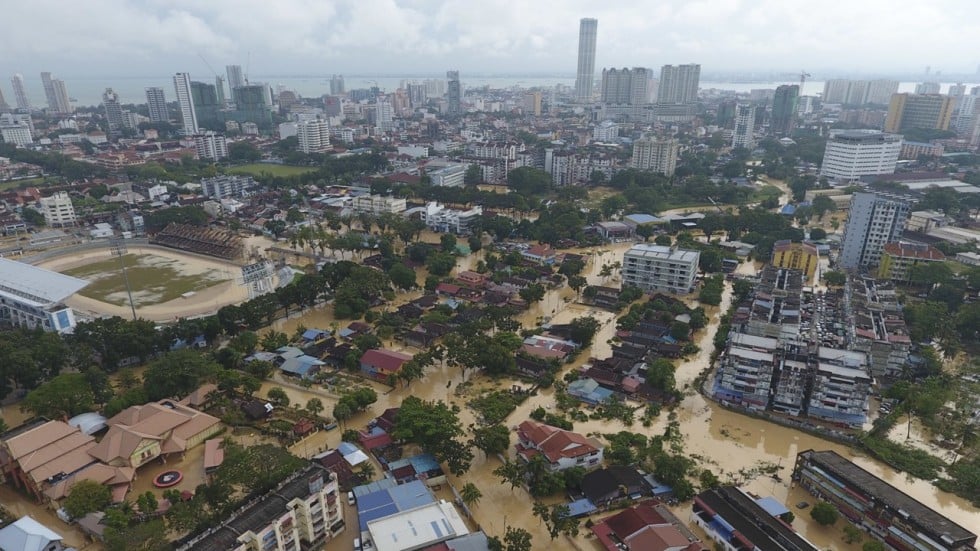KUALA LUMPUR: The performance of Malaysia’s civil service has been declining since 2014, according to a World Bank report, which also expressed concerns about the sustainability of the country’s public sector wage bill.
The report, which came about following the visit of World Bank vice-president for East Asia and Pacific Victoria Kwakwa to Malaysia last December during which she met the Prime Minister, also ranked Malaysia lowly in its indicators for accountability, impartiality as well as the transparency and openness of its public service.
The report – which is included in the World Bank’s six-monthly economic monitor on Malaysia – will be formally launched today.
World Bank lead public sector specialist Rajni Bajpai said that while Malaysia was doing better than others in South-East Asia, there was a very “big gap” in the performance of its civil servants with Organisation for Economic Co-operation and Development (OECD) countries.
 She said the report decided to compare Malaysia with the OECD countries as it was hoping to move from a middle-income status country to that of high-income.
She said the report decided to compare Malaysia with the OECD countries as it was hoping to move from a middle-income status country to that of high-income.“When you compare Malaysia with others in the region, Malaysia has been doing pretty well but we see that the performance has stagnated.
“If you look at the indicator for government effectiveness, Malaysia is still above in the region but in 2018, the performance is below that of between 1991 and 2014.
“If you take the average of that period between 1991 and 2014, it was higher than that in 2018, which means the performance is declining,” she said in an interview.
There were also some indicators in which Malaysia ranked even below the region, said Rajni, adding that this included accountability, impartiality and the openness of its public sector.
“There is a strong perception ... that recruitment of the civil service is not fair and neutral (with) Malaysia scoring very poorly on the indicators for impartiality in the government.
“It’s the lowest ranked, even below the region and way below the OECD,” she said, adding that the government in its election manifesto had suggested setting up an Equal Opportunities Commission meant to tackle discriminatory practices in both the public and private sector.
“Malaysia also scores very poorly on the openness indicators. Malaysia is not a very open economy in the sense that data sharing is a very big problem.
“The government does not share of a lot of data, even within its own departments or with the citizens. “And citizens’ feedback and voices are not factored by the government into the design of programmes,” she said, adding that the report would suggest the setting up of an institutional and legal framework for open data sharing.
Another indicator that Malaysia performed “not very well”, according to Rajni, was in digitisation and technological advances, which the government had not been able to integrate into its system to provide services.
The report, said Rajni, also focused on another critical element in Malaysia’s civil service, in that the recruitment, which was carried out by the Public Services Department, was overcentralised.
Describing Malaysia as one of the “most overcentralised”, she pointed out that in many countries, this function had been devolved to other departments and even state governments.
“Overcentralisation does not allow for the people who actually need the public servants to do certain jobs ... because they don’t have the right people or the recruitment takes a very long time,” she said.
OECD countries, said Rajni, had been using a competency framework for the recruitment of their civil service, which defined the kind of roles and skills needed in the public sector, rather than taking in people generally for everything.
Among the indicators that Malaysia performed very well were for the ease of doing business – for which Malaysia is ranked 15th – and the inclusion of women in its civil service.
“Women occupied almost 50% of the civil service although there are some issues with women in higher management,” said Rajni.
Other indicators that were highlighted in the report included political stability, regulatory quality, rule of law and control of corruption.
Source link
Related stories:
Public sector needs further reforms, say experts
Concerns over sustainability of wage bill
Apr 5, 2016 ... Now, it has been proven that the administrative capital of Putrajaya has the ...
Evidently, obesity is manifested in the abdominal fat around the ...
Public sector needs further reforms, say experts
Concerns over sustainability of wage bill
Accept criticism, PM tells govt servants
Penang to downsize civil service - Nation
Malaysia to become high-income nation
Related posts:
Huge Civil Service Size, Attractive Emoluments and Benefits are costing Malaysia !
Bloated civil sevice in Malaysia must cut down the size and salaries
Supersized and overweight civil servants
Arrest decline in productivity and competitiveness in Malaysia
Corruptions, Conflict of interests, politicians and Malaysian bloated civil service
Malaysia needs structural reforms says global investor
Middle-income trap, brain drain and high public service spending among Malaysia’s risks
Warning to civil servants: stop bodek-bodeking, Serve people and govt of the day or else ..
Malaysia's Human Resource Development Fund (HRDF) a 'personal piggy bank of sr managers!
 Malaysia
world's No.1 highest civil servants-to-population ratio! Its tenure of
service legally vulnerable but notoriously difficult to dismiss
Malaysia
world's No.1 highest civil servants-to-population ratio! Its tenure of
service legally vulnerable but notoriously difficult to dismiss
Apr 5, 2016 ... Now, it has been proven that the administrative capital of Putrajaya has the ...
Evidently, obesity is manifested in the abdominal fat around the ...The persistent pipe dream: some politicians play religion and race cards ended up becoming rats themselves
Ma'sia's skilled labour shortage, engineers not take up challenges, graduates can't solve problems
More trained workers needed to attract new capital investments



































